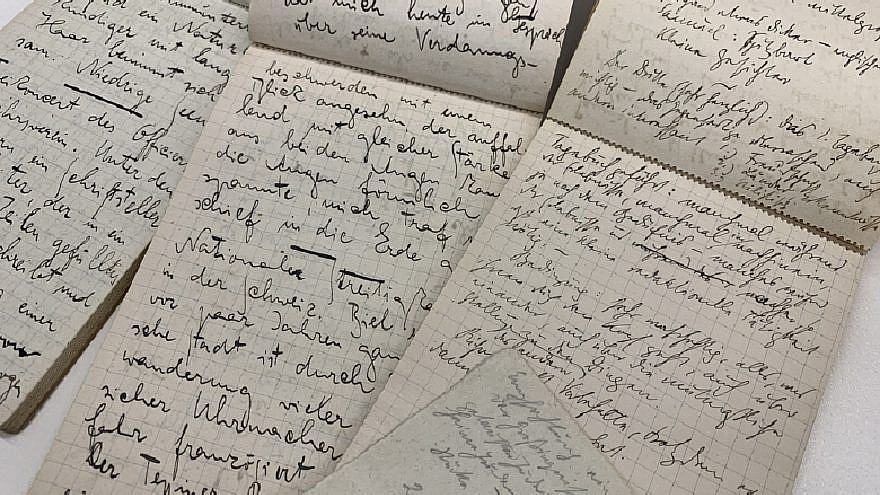Writings of 20th century Jewish writer Franz Kafka made public for the first time this summer reveal his great affinity for the Hebrew language. Living in Prague in the early 20th century, Kafka wrote mainly in German, but a series of letters he wrote to his sabra, or Israel-born, Hebrew teacher Puah Ben Tovim Menczel illustrate his efforts to learn and use Hebrew.
Kafka’s writings were delivered to the National Library of Israel in Jerusalem this summer, 95 after his death at age 40. They had previously sat for decades in the Zurich safety deposit box of Esther Hoffe, the former secretary of Kafka’s close friend, biographer and literary executor of his estate Max Brod.
According to reports, although Kafka’s will requested that the documents be placed in a public archive, when Brod died in 1968 in Tel Aviv, Hoffe sold them over a period of decades, unsuccessfully bequeathing them to her daughters and instead placing the unsold items into safety deposit boxes.
Some of the artifacts that have now been made public include a Hebrew vocabulary notebook, vocabulary and expressions translated from Hebrew to German and letters in Hebrew that Kafka wrote to Menczel. Also among the documents are draft versions of Kafka’s prominent works, including “Letter to His Father,” which he wrote in Hebrew.
One of Kafka’s teachers, Hebrew poet and author Jiri Mordechai Langer, wrote that Kafka’s fluency in Hebrew “caused him particular satisfaction and I don’t think I would be exaggerating in saying that he truly prided himself in knowing it,” and that “He was also pleased over every new Hebrew word that he learned from me as if it was from a great treasure.”


























